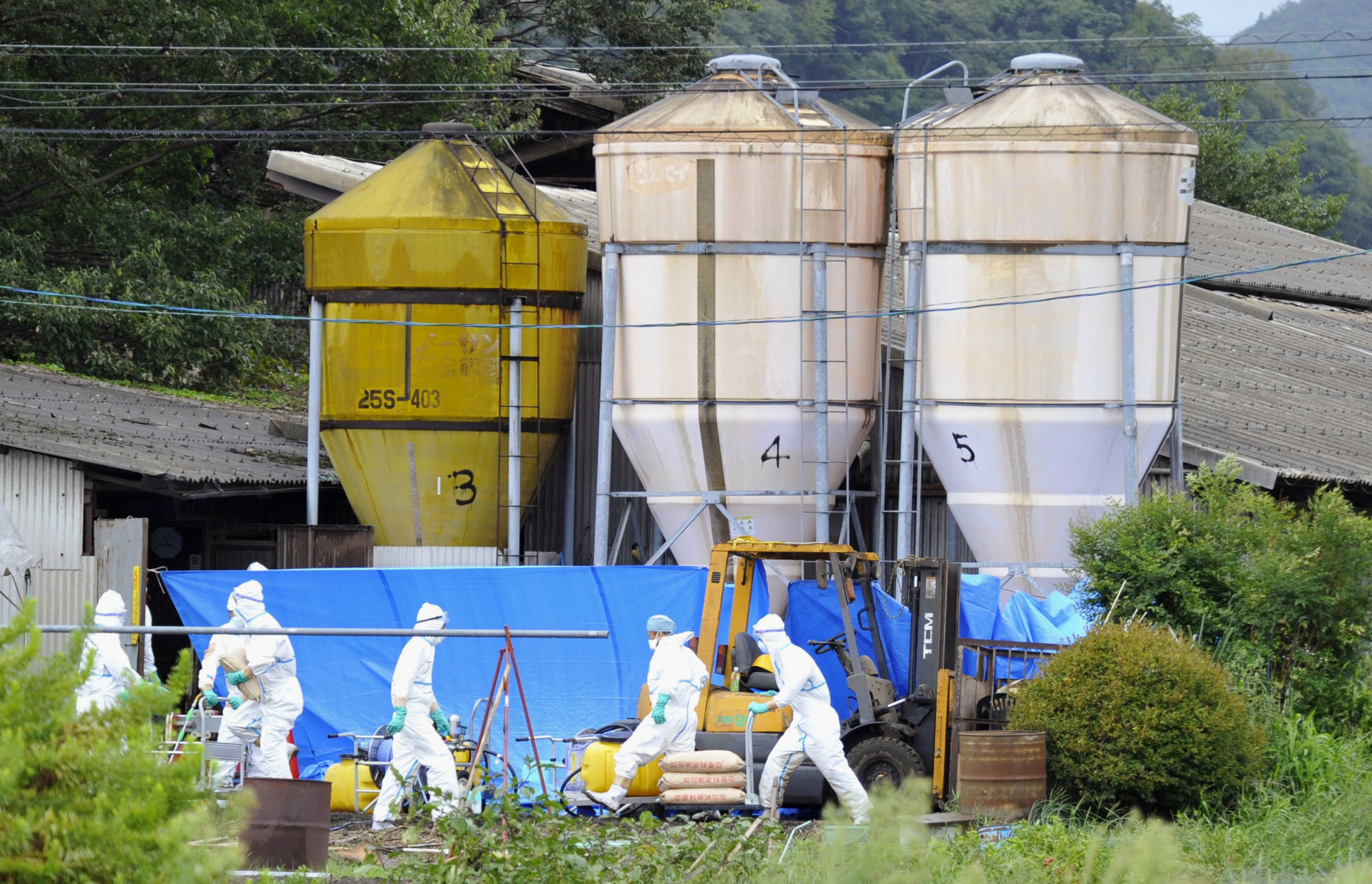An outbreak of swine fever confirmed at a farm in Gifu over the weekend has led to the culling and burying of 546 hogs and the halt of pork exports across Japan, authorities said Monday.
The shipment ban is expected to be in place for at least three months until Japan is declared clear of the disease, which only affects pigs and wild boars and has an almost 100 percent fatality rate. Japan's pork exports totaled ¥1 billion ($9 million) in 2017.
Around 140 pigs at the farm have died from the disease, also known as hog cholera, over the past week. The symptoms include motor difficulty and loss of appetite.
The disease does not affect humans even if meat from an infected animal is consumed.
All of the dead pigs had been buried at the farm by Monday morning, and the disinfection of the facility is expected to be completed by Tuesday.
Though hog cholera is endemic in Asia, it is the first time since 1992 an infection has been found in Japan. Tokyo declared the virus eradicated in 2007.
It is not yet clear how the outbreak started, and the central and prefectural governments will look into the cause. The Gifu Prefectural Government pointed to the possibility that inflected boars or pigs were brought in from outside.
The farm had been shipping pork until last Wednesday, two days after a pig suddenly died there. While the animal did not test positive during a preliminary screening by the local government, further tests by the central government found Sunday that the pig was infected with the virus.
At a task force meeting Sunday, farm minister Ken Saito pledged to contain the virus.
"First responses are crucial," he said.
Pork exports can resume once countries that import Japanese pork products approve.




